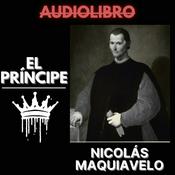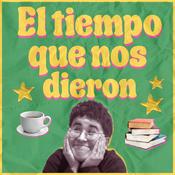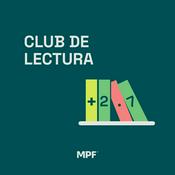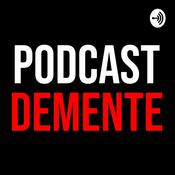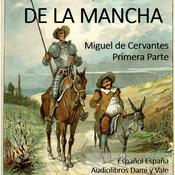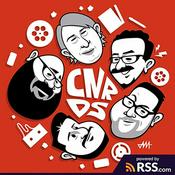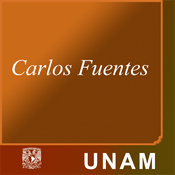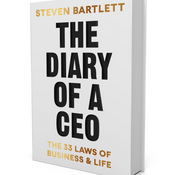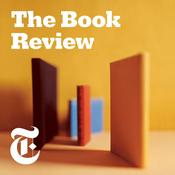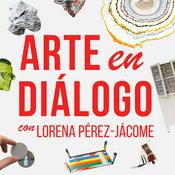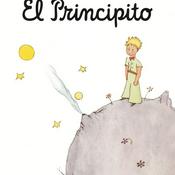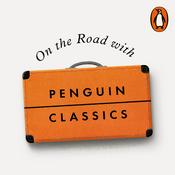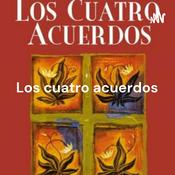31 episodios
- Interview with Jason Jackson, author of 'Traders, Speculators, and Captains of Industry' (Harvard University Press)We discuss:• Why standard explanations of Indian economic policy fall short• The rise of Indian economic nationalism and its internal paradoxes• How technology, joint ventures, and industrial policy became moral questions• The expulsion of Coca-Cola and what it symbolized• “Cowboy multinationals,” “one-night stands,” and capitalist legitimacy• What India reveals about capitalism as a moral and political system• Why these debates matter even more in today’s fractured global economyThis conversation is not just about India—it’s about how states everywhere decide who deserves to be a capitalist.
-------
Javier Mejia is a Stanford University lecturer who specializes in the intersection of social networks and economic history. His research interests also include entrepreneurship and political economy, with a particular focus on Latin America and the Middle East. He holds a Ph.D. in Economics from Los Andes University. Mejia has previously been a Postdoctoral Associate and Lecturer at New York University-Abu Dhabi and a Visiting Scholar at the University of Bordeaux. He is also a frequent contributor to various news outlets, currently serving as an op-ed columnist for Forbes Magazine.
Twitter (X): https://twitter.com/JavierMejiaC
Instagram: https://www.instagram.com/javier_mejia_c/
LinkedIn: https://www.linkedin.com/in/javier-mejia-cubillos-64504562/ - Interview with Lisa J. Lucero, author of 'Maya Wisdom and the Survival of Our Planet'
Maya Wisdom and the Survival of Our Planet presents the Maya way of seeing and interacting with the world, which embodies lessons and provides solutions to ensure a sustainable future of Earth. This book is based on over three decades of working with Maya associates in Belize, Central America, to study the ancestral Maya as an archaeologist, and it approaches the future through the lens of the Maya nonanthropocentric inclusive worldview. Ancestral Maya people worked with, not against, nature. Nor did they privilege humans at the expense of nonhumans. Their engagement with the tropical environment was expressed in a landscape of green cities, farmsteads, gardens, fields, forests, and sacred places. The Maya built green cities that drew people in through royal reservoirs, a system that lasted over 1,000 years in the southern lowlands (c. 300 bce to 900 ce). After taking the reader on a journey through Maya history, their tropical world, and how they lived in it and engaged with nonhumans through ceremonies, the book concludes with concrete solutions that bridge the past and present for the future. Conditions are not going to change, but people can. Maya resilience is a testament for how to move forward, and this book provides a roadmap of how to do so.
-------
Javier Mejia is a Stanford University lecturer who specializes in the intersection of social networks and economic history. His research interests also include entrepreneurship and political economy, with a particular focus on Latin America and the Middle East. He holds a Ph.D. in Economics from Los Andes University. Mejia has previously been a Postdoctoral Associate and Lecturer at New York University-Abu Dhabi and a Visiting Scholar at the University of Bordeaux. He is also a frequent contributor to various news outlets, currently serving as an op-ed columnist for Forbes Magazine.
Twitter (X): https://twitter.com/JavierMejiaC
Instagram: https://www.instagram.com/javier_mejia_c/
LinkedIn: https://www.linkedin.com/in/javier-mejia-cubillos-64504562/ - Interview with Walter Scheidel, author of 'What is Ancient History?'It’s easy to think that ancient history is, well, ancient history—obsolete, irrelevant, unjustifiably focused on Greece and Rome, and at risk of extinction. In What Is Ancient History?, Walter Scheidel presents a compelling case for a new kind of ancient history—a global history that captures antiquity’s pivotal role as a decisive phase in human development, one that provided the shared foundation of our world and continues to shape our lives today.
-------
Javier Mejia is a Stanford University lecturer who specializes in the intersection of social networks and economic history. His research interests also include entrepreneurship and political economy, with a particular focus on Latin America and the Middle East. He holds a Ph.D. in Economics from Los Andes University. Mejia has previously been a Postdoctoral Associate and Lecturer at New York University-Abu Dhabi and a Visiting Scholar at the University of Bordeaux. He is also a frequent contributor to various news outlets, currently serving as an op-ed columnist for Forbes Magazine.
Twitter (X): https://twitter.com/JavierMejiaC
Instagram: https://www.instagram.com/javier_mejia_c/
LinkedIn: https://www.linkedin.com/in/javier-mejia-cubillos-64504562/ - Interview with Julia Cagé, co-author with Thomas Piketty of 'A History of Political Conflict: Elections and Social Inequalities in France, 1789–2022'
Who votes for whom and why? Cagé and Piketty comb through more than two hundred years of data from some 36,000 French municipalities to show how inequality has shaped the formation of political coalitions, with stark consequences for economic and political development.
Cagé and Piketty argue that today’s tripartite division of French political life—a competition among a bourgeois central bloc and distinct factions of the urban and rural working classes—has a precise, and revealing, historical analogue. To understand contemporary tensions, we can look to the end of the nineteenth century and the beginning of the twentieth, another period when runaway economic inequality produced such a three-way rivalry. Cagé and Piketty show that tripartition has always been unstable, whereas the binary political conflict enabled by relative equality and typical of most of the twentieth century facilitated social and economic progress. Comparing these configurations over time helps us envisage possible trajectories for the French political system in the coming decades.
With its many changes in governmental structure since 1789, France is an ideal laboratory for studying the vicissitudes of modern political life in general, and electoral democracy in particular. Using France as a model, A History of Political Conflict offers a powerful framework for understanding the complex project of building and sustaining democratic majorities.
-------
Javier Mejia is a Stanford University lecturer who specializes in the intersection of social networks and economic history. His research interests also include entrepreneurship and political economy, with a particular focus on Latin America and the Middle East. He holds a Ph.D. in Economics from Los Andes University. Mejia has previously been a Postdoctoral Associate and Lecturer at New York University-Abu Dhabi and a Visiting Scholar at the University of Bordeaux. He is also a frequent contributor to various news outlets, currently serving as an op-ed columnist for Forbes Magazine.
Twitter (X): https://twitter.com/JavierMejiaCInstagram: https://www.instagram.com/javier_mejia_c/LinkedIn: https://www.linkedin.com/in/javier-mejia-cubillos-64504562/Spotify: https://open.spotify.com/show/3WqEZXavqg3qstoLKwtllF?si=589f4216d414448fApple Podcasts: https://podcasts.apple.com/us/podcast/the-economic-and-political-history-podcast/id1708348817 - Interview with Kim Bowes, author of 'Surviving Rome: The Economic Lives of the Ninety Percent'The story of ancient Rome is predominantly one of great men with great fortunes. Surviving Rome unearths another history, one of ordinary Romans, who worked with their hands and survived through a combination of grit and grinding labor.
Focusing on the working majority, Kim Bowes tells the stories of people like the tenant farmer Epimachus, Faustilla the moneylender, and the pimp Philokles. She reveals how the economic changes of the period created a set of bitter challenges and opportunistic hustles for everyone from farmers and craftspeople to day laborers and slaves. She finds working people producing a consumer revolution, making and buying all manner of goods from fine pottery to children’s toys. Many of the poorest working people probably pieced together a living from multiple sources of income, including wages. And she suggests that Romans’ most daunting challenge was the struggle to save. Like many modern people, saving enough to buy land or start a business was a slow, precarious slog. Bowes shows how these economies of survival were shared by a wide swath of the populace, blurring the lines between genders, ages, and legal status.
-------
Javier Mejia is a Stanford University lecturer who specializes in the intersection of social networks and economic history. His research interests also include entrepreneurship and political economy, with a particular focus on Latin America and the Middle East. He holds a Ph.D. in Economics from Los Andes University. Mejia has previously been a Postdoctoral Associate and Lecturer at New York University-Abu Dhabi and a Visiting Scholar at the University of Bordeaux. He is also a frequent contributor to various news outlets, currently serving as an op-ed columnist for Forbes Magazine.
Twitter (X): https://twitter.com/JavierMejiaC
Instagram: https://www.instagram.com/javier_mejia_c/
LinkedIn: https://www.linkedin.com/in/javier-mejia-cubillos-64504562/
Más podcasts de Arte
Podcasts a la moda de Arte
Acerca de The Economic and Political History Podcast
The Economic and Political History Podcast delves into the intersection of economics, political science, and history. Join us as we introduce you to the world's most influential economists, political scientists, and historians, engaging in informal and insightful conversations about their careers and latest work. Our aim is to bring their expertise to a wider audience through new media, exploring cutting-edge ideas and the implications of their latest books. Tune in to stay informed and inspired by the forefront of academic thought on the key issues shaping our world today.
Sitio web del podcastEscucha The Economic and Political History Podcast, Audiolibros Interesantes y muchos más podcasts de todo el mundo con la aplicación de radio.net
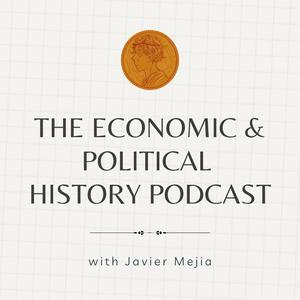
Descarga la app gratuita: radio.net
- Añadir radios y podcasts a favoritos
- Transmisión por Wi-Fi y Bluetooth
- Carplay & Android Auto compatible
- Muchas otras funciones de la app
Descarga la app gratuita: radio.net
- Añadir radios y podcasts a favoritos
- Transmisión por Wi-Fi y Bluetooth
- Carplay & Android Auto compatible
- Muchas otras funciones de la app


The Economic and Political History Podcast
Escanea el código,
Descarga la app,
Escucha.
Descarga la app,
Escucha.



